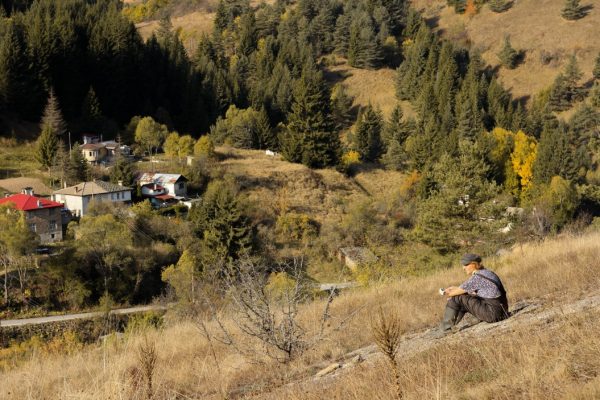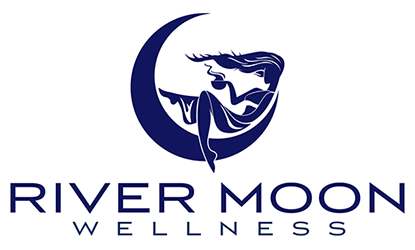Stewardship | Finding Balance as Roaster and Curator

by Sofie Wicklund | 2020
“The earth is what we all have in common.” -Wendell Berry
Today, more than any other time in human history, we are in critical need of global environmental stewardship. Agriculture is driving 80 percent of tropical rainforest deforestation and releasing billions of tons of greenhouse gas emissions every year. Climate change is altering human and ecological communities on large scales. At the same time, youth and adults alike are becoming increasingly detached–physically, socially and emotionally–from the natural world around them. It seems as though stewards are becoming far and few between. Environmental stewardship is defined as the responsible use of natural resources in a way that takes full and balanced account of the interests of society, future generations, and other species, as well as private needs, and accepts significant answerability to society. It sounds complex, but the path to get there is familiar to our species: it has been practiced by humans for thousands of years.
River Moon Coffee is in a unique position as both a roaster of coffee and a curator of CBD offerings, and environmental stewardship has always been at the forefront of their business initiatives. But achieving a sustainable, low-impact balance is not always simple or easy. As humans, we are consumers at a basic species level. Every one of us, as Robin Wall Kimmerer puts it, is “a mere heterotroph, a feeder on the carbon transmuted by others. In order to live, [we] must consume. That’s the way the world works, an exchange of a life for a life . . .” (Braiding Sweetgrass, 2014).
Our bodies are in an endless cycle of consumption with the body of our world. Thus, we can’t necessarily shame ourselves as a species for the simple fact of our needing to take from the earth to survive. Living with zero impact on the earth is both unrealistic and unattainable. Indeed, “the need to resolve the inescapable tension between honoring life around us and taking it in order to live is part of being human” (Kimmerer, Braiding Sweetgrass, 2014).
So, how can we live and consume in a way that balances our needs with the needs of our planet? Let’s start with the role of the coffee industry in the realm of environmental stewardship. The Water Footprint Network reports that, on average, a 4oz cup of coffee has a water footprint of 37 gallons. It’s no secret that coffee production is water-intensive. And the world loves coffee. Over 2.25 billion cups of coffee are consumed in the world every single day. The coffee industry as a whole has a large impact on land and resource use across the world, and it is simultaneously being deeply affected by climate change due to the conditions in which coffee beans need to grow. This means that if we want to keep enjoying our coffee, we need to change how it is farmed, processed, distributed and ultimately, consumed. We can start by supporting small coffee farmers as opposed to large industrial agribusinesses, through choosing small roasters that are transparent about their production chains and farmer relationships. Living sustainably doesn’t need to mean dropping everything that is imported or globally traded in favor of consuming only locally grown resources, but it should mean that we consider where we are purchasing our favorite products as well as the relationships, both human and environmental, that our dollar is supporting.
Let’s now consider CBD (cannabidiol), most commonly derived from hemp. When looking at the sustainability of CBD, we therefore need to be looking at industrial hemp production. Hemp has been widely hailed as a ‘miracle crop’ because of its huge versatility, since it can be grown for its seeds or for its fiber. Hemp is also a very hardy plant, requiring no herbicides whatsoever and very few pesticides if any. Additionally, it is an excellent rotation crop; it can prevent the growth of weeds and loosen soil to prepare for winter crop rotations. As many agricultural industries like tobacco and dairy are becoming less economically and environmentally viable, hemp could fill those gaps and help farmers move away from those industries while simultaneously sustaining agricultural jobs. In fact, the 2018 United States Farm Bill introduced pilot programs with the goal of supporting farmers in switching over to hemp production. This proved especially easy for tobacco farmers, due to the similarity of the two crops and the methods used to grow and harvest them. Hemp has also been explored and utilized as an environmentally sustainable fabric in the fashion and garment industry, which holds huge potential given this industry is one of the world’s largest polluters. All things considered, hemp holds enormous potential as a multi-functional crop that is less energy-intensive, less polluting and extremely versatile.
As River Moon brings coffee and CBD together in a mindful way, they recognize that there is a delicate balance when it comes to stewardship through sustainable practices. We all know that it is impossible to live on this earth without having an impact. But perhaps we should frame what we think of as impact in a new light. What if the impact we created was positive? What if we supported farmers who used their skills to farm regeneratively, putting more love and nourishment back into the land than they extracted? What if we invested in a versatile plant like hemp and supported the transition into a multi-functional agricultural system? We can consider these “impacts” every day when we make choices as consumers. As Jane Goodall said, “you cannot get through a single day without having an impact on the world around you. What you do makes a difference, and you have to decide what kind of difference you want to make.”


